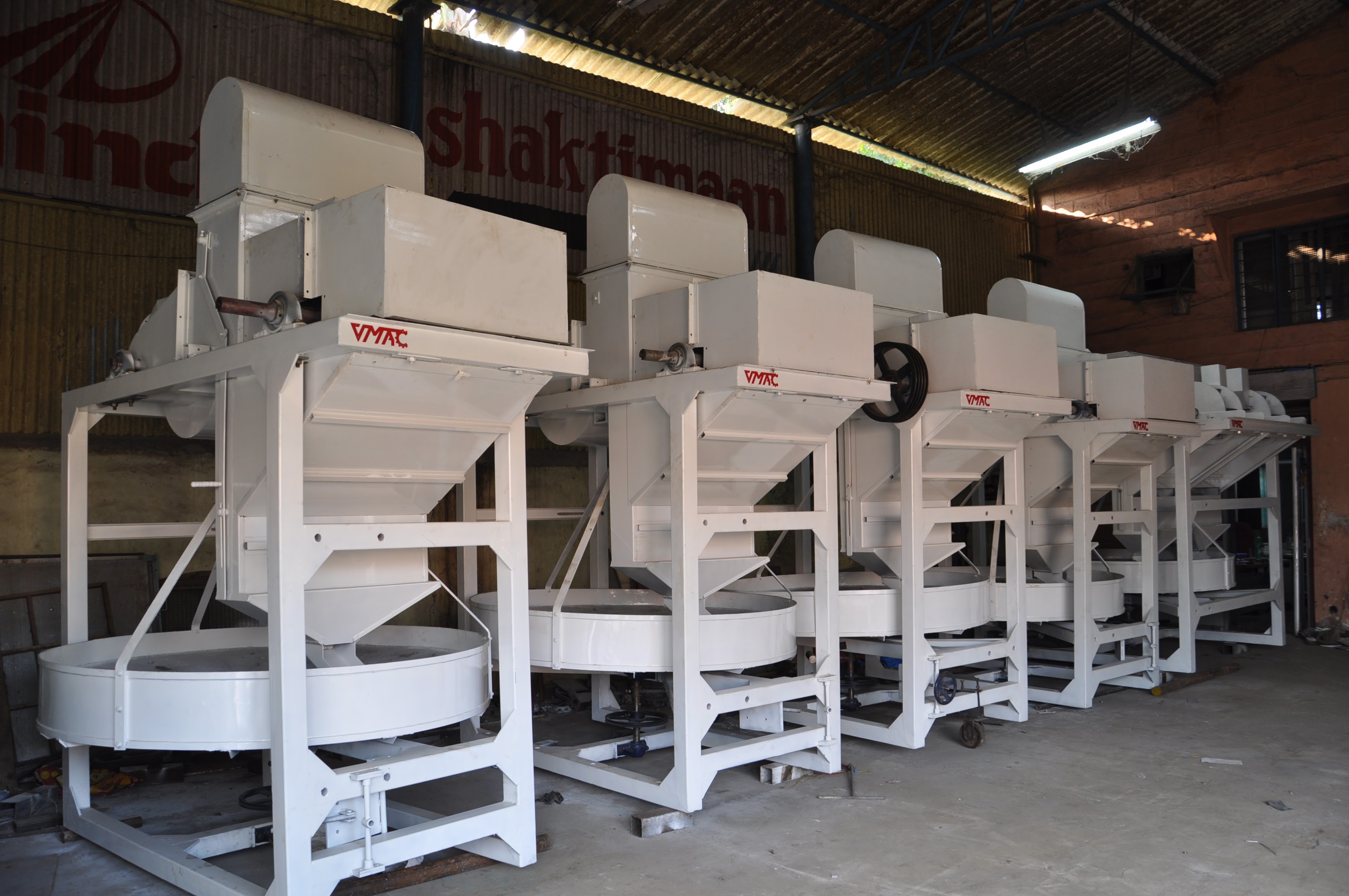
Production
Mastering Coffee Production
At Vmac Industries, we've mastered the balance between traditional craftsmanship and modern technology.
Discover how emerging technologies—from AI-driven machinery to sensor-based analytics—are revolutionizing coffee processing, boosting productivity, and shaping the industry's future.
The coffee industry has always been ripe for innovation, evolving from traditional hand sorting and manual roasting to the modern, data-rich operations we see today. Automation is the next frontier—equipping producers with the tools to handle high volumes, reduce errors, and optimize every stage of the coffee workflow. This article explores the latest automation trends, showcasing how advanced machinery, real-time data, and integrated systems are reshaping coffee production and what it all means for your operation’s efficiency and competitiveness.
Cost Savings
Automated equipment reduces labor-intensive tasks, lowers error rates, and minimizes downtime—crucial for maintaining healthy profit margins.
Quality Consistency
Sensors and programmable controls help each process (from hulling to roasting) maintain uniform standards, driving better and more predictable flavor outcomes.
Global Scalability
As coffee demand grows, producers must scale operations without sacrificing product integrity. Automation enables higher throughput while maintaining robust quality control.
Labor and Skills Gaps
In some regions, a shrinking labor pool makes it challenging to find skilled workers for repetitive tasks. Automation fills this gap, freeing human labor for more value-added roles like quality assessment and customer engagement.
How It Works
Cameras and laser technology rapidly analyze beans on a conveyor, identifying color discrepancies, defects, or foreign objects.
Why It Matters
This technology supports far higher sorting speeds than manual inspection, ensuring consistent batch quality.
Adaptive Algorithms
Over time, AI-driven systems learn to identify new defect patterns or subtle color changes, refining accuracy with each batch processed.
Data Insights
By categorizing defects, producers can tackle root causes in cultivation or drying, continuously improving overall bean quality.
Temperature and Humidity Sensors
In roasters, dryers, and silo storage, these sensors detect conditions that can lead to under-roasting, over-drying, or mold.
Immediate Adjustments
Alerts can prompt operators—or automated controllers—to tweak airflows, burner intensities, or conveyor speeds, preserving bean integrity.
Vibration and Motor Load Analysis
Sensors measure mechanical stress, spotting early signs of wear in belts, bearings, or drive motors.
Reduced Downtime
By scheduling repairs before a breakdown, operations stay on track, minimizing production and revenue losses.
Streamlined Bean Flow
Automated conveyors and robotic arms guide coffee through each processing stage with minimal human intervention.
Precision and Speed
Handling tasks like filling bags, palletizing, or transferring beans between machines become faster and less error-prone.
Warehouse Mobility
In large facilities, AGVs transport beans to silo stations or packaging lines, navigating using lasers or magnetic tracks.
Smart Routing
Real-time data ensures these vehicles avoid congestion and optimize travel paths, speeding up overall logistics.
Integrated Dashboards
Managers can log into a single interface to see throughput, defect rates, moisture levels, and motor statuses across multiple machines—even remote facilities.
Alerts and Insights
Cloud-based analytics detect anomalies or trends (e.g., a spike in broken beans) and send real-time notifications for immediate action.
Adaptive Roasting
Next-gen roasters use data from previous batches—cupping scores, roast levels, moisture content—to automatically refine future roast curves.
Flavor Consistency at Scale
Such systems remove guesswork from roast durations or temperature ramps, especially crucial for specialty coffee lines.
Transparent Records
From farm to final packaged coffee, each transaction and process step can be recorded in a tamper-proof system.
Consumer Confidence
Retailers and specialty roasters gain confidence in origin authenticity and processing methods, often translating to higher price premiums.
Barcodes and QR Codes
Linking each batch to its unique ID ensures that any quality issues can be traced back to a specific farm lot, processing date, or machine run.
Compliance Ease
Meeting export or certification requirements becomes simpler with real-time digital records replacing manual logs.
Assess Existing Workflows
Identify repetitive tasks or manual bottlenecks—like bean loading, sorting, or transferring—where automation can yield immediate ROI.
Secure Infrastructure
Upgrading to automation often requires stable power supplies, robust network connectivity, and reliable safety measures.
Team Readiness
Operators and technicians must learn new digital tools and interfaces. Ongoing training ensures smooth adoption and minimal resistance.
Scalability
Choose flexible automation solutions capable of adapting to increased bean volumes or expansions into new product lines (e.g., micro-lot specialty roasts).
A mid-sized roastery aiming to scale globally integrated automated conveyors, AI-based optical sorters, and a sensor-driven roaster. The results:
Increased Throughput by 40%
Continuous bean flow with minimal manual handling shortened processing times.
Reduced Defect Rates
Automated sorting flagged out defective beans more accurately than manual pickers.
Data-Backed Quality Assurance
Detailed logs of roast curves, moisture levels, and machine performance improved consistency, boosting specialty sales by 25%.
Key takeaway: Thoughtful application of automation can raise both the quantity and quality of coffee output, with data insights driving continual refinement.
Automation trends in coffee production are reshaping how growers, processors, and roasters operate—delivering enhanced throughput, consistent quality, and deeper insights. Implementing AI-driven sorters, sensor-based processing, robotics, and cloud-connected analytics elevates your facility’s performance and builds resilience in a rapidly evolving industry. By embracing these modern tools, your coffee operation not only meets current consumer demands but stays prepared for the next wave of innovation.
Lastest blog posts